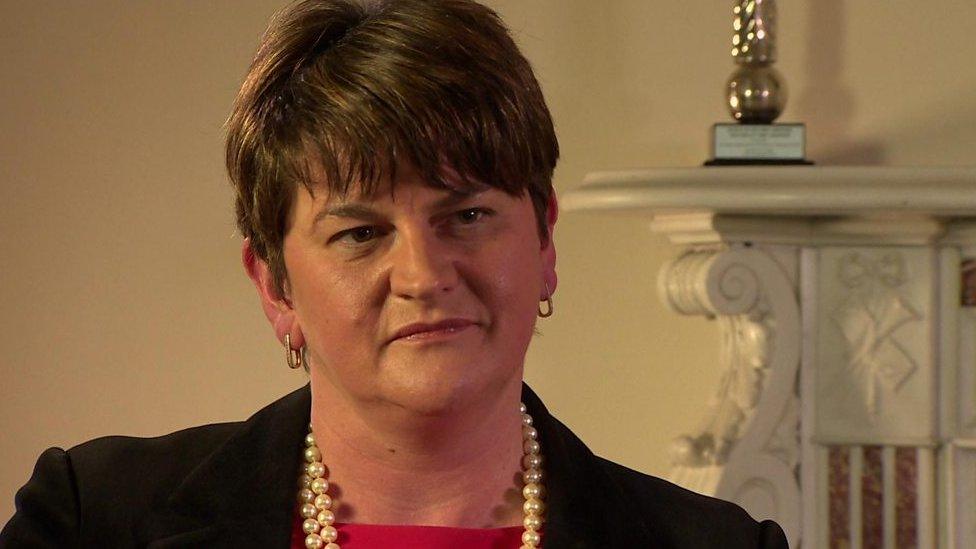RHI inquiry: A matter of 'deep regret' says Arlene Foster
- Published
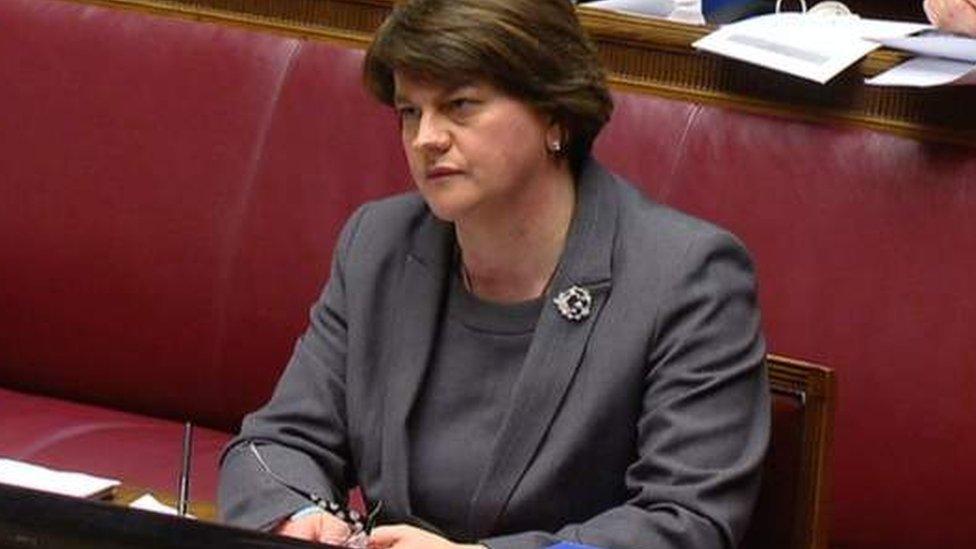
The DUP leader and former first minister made her first appearance in front of the inquiry on Thursday afternoon
The DUP leader Arlene Foster has said she does not think she bears personal responsibility for the collapse of the RHI scheme.
She made the comments at the start of her evidence to the RHI inquiry.
She said she was glad to have the opportunity to counter malevolent and misinformed commentary around it.
She added that the fallout from it was a matter of "deep regret for me politically and personally".
Mrs Foster was the minister at Stormont's Department of Enterprise, Trade and Investment (DETI) when it set up the flawed green energy scheme in 2012, and in that role she signed off on the project.
When the scale of the scandal emerged in December 2016, there were widespread calls for her to resign to allow an investigation to be carried out into what went wrong.
She refused and the Northern Ireland Executive - a coalition between her party, the DUP, and Sinn Féin - collapsed.
Mrs Foster has consistently denied any wrongdoing in relation to the scheme.
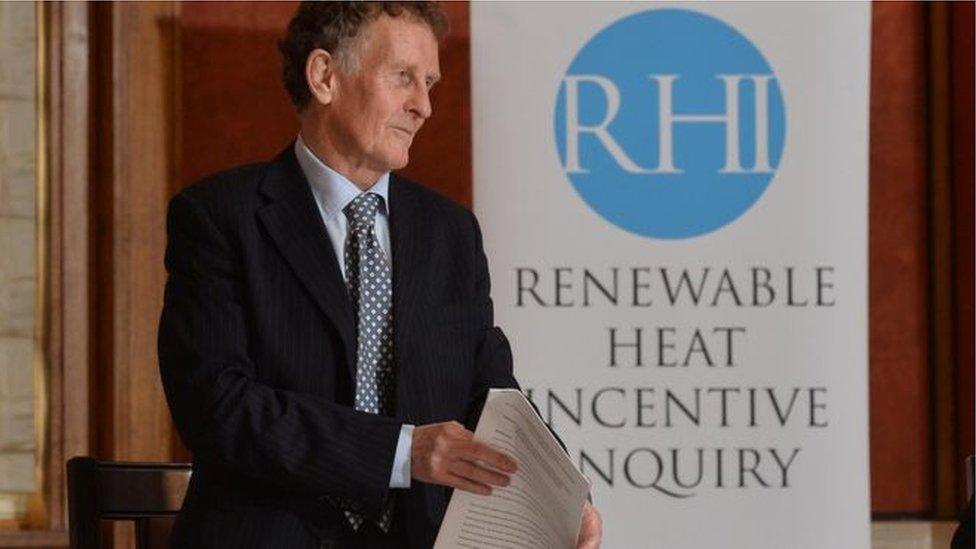
The RHI public inquiry is being chaired by Sir Patrick Coghlin
While the fallout over RHI had been given as the reason for the collapse of Stormont and devolved government, she said she believed it had not been the real reason.
Mrs Foster said looking back and having re-read many of the submissions she had been given, it was "difficult to see what I could have done differently at that time".
She was asked whether she felt she bore any personal responsibility.
She said it was her position that she did not, but if she thought of anything she would raise it in due course.
The DUP leader added that there had been issues going in the background that had not been brought to her attention and if they had, things could have turned out differently.

At the hearing
Jayne McCormack, digital politics reporter
Day 54 of the inquiry saw its star witness make her long-awaited first appearance for questioning.
Behind Arlene Foster in the chamber where the inquiry is being held, sat rows of lawyers tapping away on their laptops.
Despite public interest in the evidence, in the gallery sat just two or three students visiting Stormont for the day and several journalists.
Thursday afternoon's session was quite technical and focused in on the very beginnings of the scheme, when Arlene Foster was enterprise minister.
But when asked if she'd been on the same page as her officials in terms of wanting to introduce a Northern Ireland RHI scheme instead of adopting the Great Britain version, a relaxed Mrs Foster replied: "It wasn't a burning issue for me - if I can use that phrase."

Before she began her evidence, the inquiry was told that Mrs Foster would be afforded the same respect as every other witness.
It heard there was likely to be "heightened interest" in her evidence due to her former "high office" she held as first minister and current role as party leader.
The comments were made by inquiry counsel David Scoffield QC.
He reminded them, however, that the inquiry was an inquisitorial not an adversarial setting.
Inquiry phases
He said she would be asked probing questions but would be treated the exact same as all the other witnesses, with "rigour, courtesy and of course, fairness".
He also pointed out that the inquiry was looking at the RHI story in phases.
Mr Scoffield said Mrs Foster's evidence in coming days would therefore focus on the design of the scheme, and its operation up to the end of June 2015.
As a result, he said anyone hoping to hear about delays in the introduction of cost controls in late 2015 and the closure of the scheme in 2016 would have to wait for several months.
He acknowledged that those matters were of "intense public interest".
But he said Mrs Foster would likely be called back in September to give evidence on those issues.
Energy matters 'complicated'
Mrs Foster later said she regretted that Northern Ireland did not simply copy an existing renewable heat scheme in Great Britain rather than develop its own.
She said she had allowed herself to be led by officials and by evidence as to what was the best way forward.
She was also asked about the role of her former special adviser Andrew Crawford.
She said it was part of his role to read technical reports and advise her on the content.
It emerged early in respect of one key decision at the very start of the scheme, that Mr Crawford had not asked to see the technical document on which the decision was made.
She said when it came to energy matters she found them complicated and they were not something she enjoyed.
She added, however, that they remained an important part of her ministerial portfolio as Northern Ireland had responsibilities to meet EU targets on renewable heat.
- Published12 April 2018
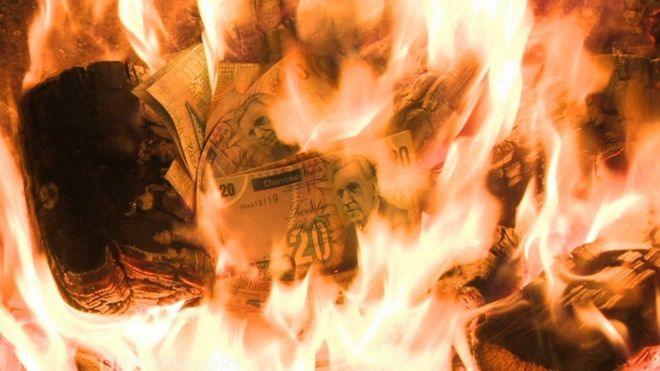
- Published12 April 2018
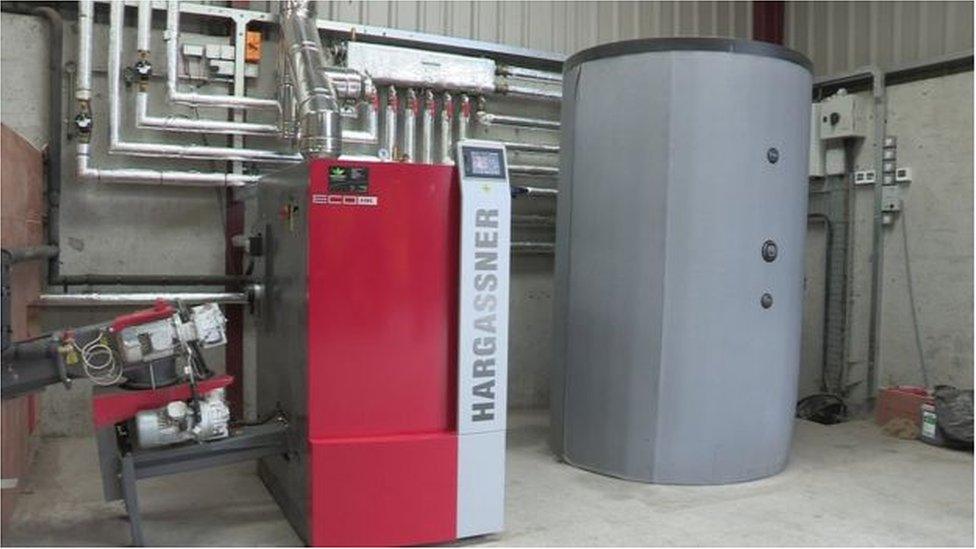
- Published12 April 2018
